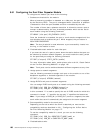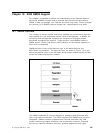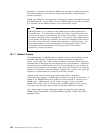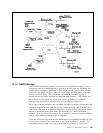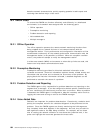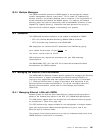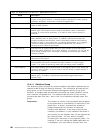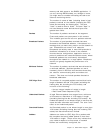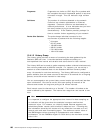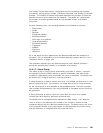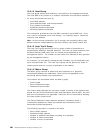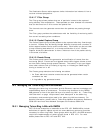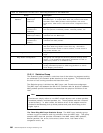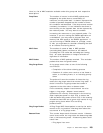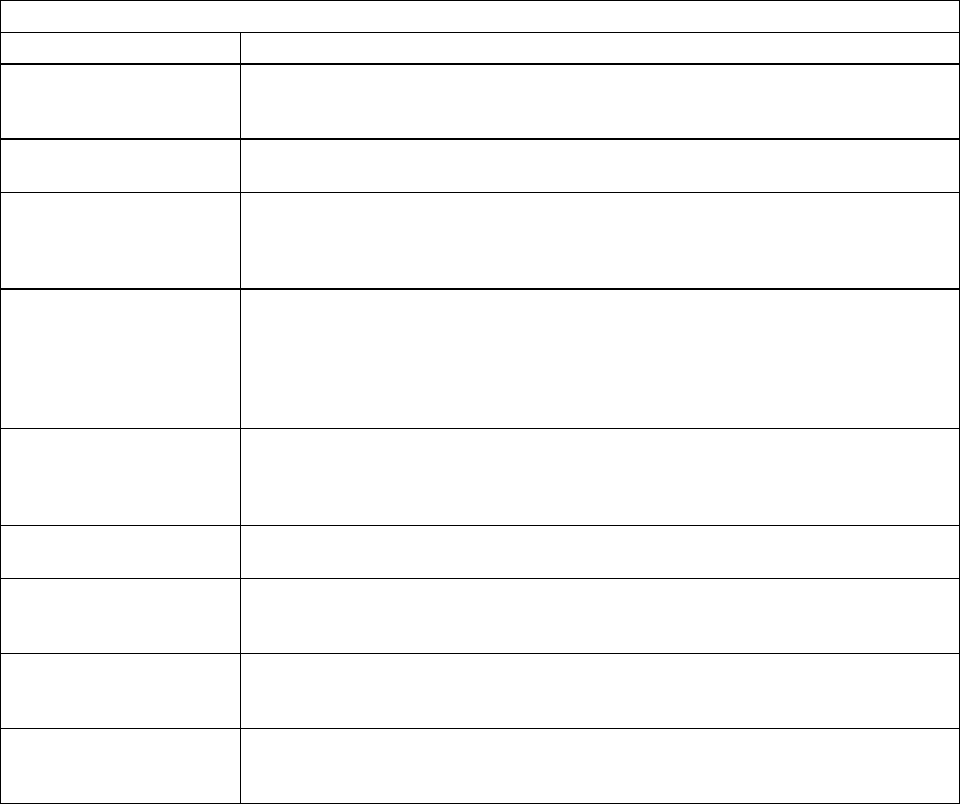
Table 32. MIB Structure for RFC 1271 - RMON MIB for Ethernet
Group Description
Statistics The Statistics group provides an overview of the current segment network
activity at any given moment. It collects segment statistics like octets, packets,
collisions, broadcast, various error counters and packet size.
History The History group records periodic statistical samples from a segment and stores
them for later retrieval.
Alarm The Alarm group periodically takes statistical samples from variables in the
RMON agent and compares them to defined thresholds. When a threshold is
crossed, an event will be generated. It is useful to track unusual activity or
problems.
Host The Host group maintains host tables by keeping a list of source and destination
MAC addresses seen in good packets. In addition, statistics like octets and
packets transmitted and received, errors transmitted, broadcast and multicast
packets are kept on a per host basis. In problem determination, it is extremely
useful for isolating the culprit by its interface address that, for instance, is
causing the error count to rise sharply.
Host Top ″N″ The Host Top ″N″ group provides lists of a given number of hosts that meet a
particular criteria ordered by one of their statistics. For instance, you can list the
top 5 packet sending hosts. This helps in isolating the hosts that are creating
network problems.
Matrix The Matrix group monitors and stores information about conversations between
two hosts in the network.
Filter The Filter group allows packets of particular interest to be filtered and isolated.
These packets can then be directed into capture buffers or used to trigger
events. It is useful for monitoring traffic flow and setting alarm conditions.
Packet Capture The Packet Capture group allows packets to be captured upon a filter match and
stored for later retrieval. It can be used to view the history of packet activity in
the event of a failure.
Event The Event group controls the generation and notification of events from the
RMON agent. It contains a log table that associates logged entries with a
specific event.
10.4.1.1 Statistics Group
The Statistics group contains very useful statistical information gathered by the
network probe through its Ethernet interface. The information provided by this
group gives a view of the total Ethernet LAN segment activity at any given
moment. It samples data and provides information by octets, packets, various
error counters and packet size. The statistics take the form of free running
counters that start from zero. Here is the list of statistics available under this
group:
Drop Events The number of events in which packets were dropped
by the probe due to unavailability of resources on the
probe itself. It doesn′t represent the number of
packets dropped but the number of times this
condition was detected. If the drop events counter
constantly increments, it is an indication that there is
more activity on the segment than can be captured by
the network probe. You may want to consider
increasing the resources on your network probe. For
instance, if you are running the RMON application on
a workstation, you may want to allocate more real
196 8260 Multiprotocol Intelligent Switching Hub



